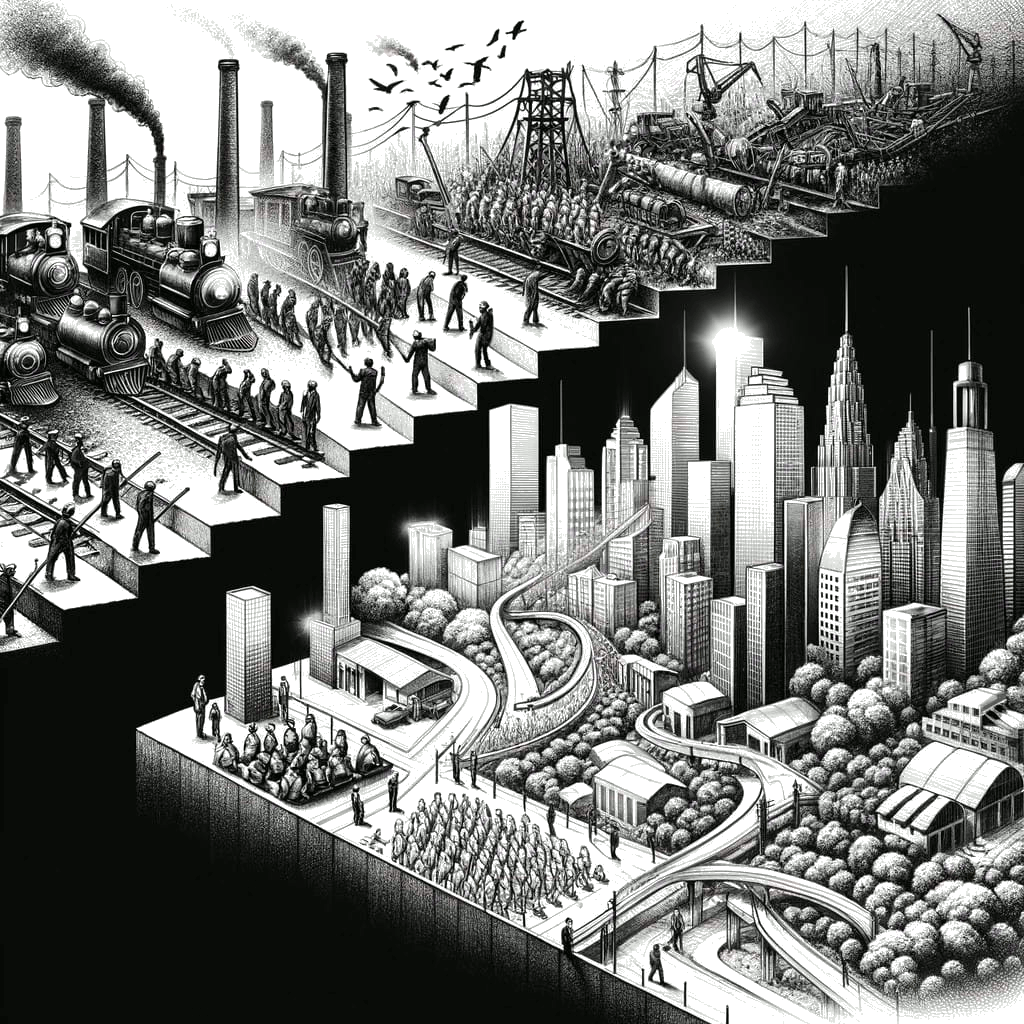
The adage “no pain, no gain,” commonly associated with the rigors of athletic training, finds a surprisingly apt application in the economic realm, particularly for emerging nations. This philosophy underscores a fundamental truth: significant progress often requires enduring challenges and hardships. For an emerging nation, economic development and transformation are akin to a strenuous workout, demanding perseverance, resilience, and the willingness to undergo short-term discomfort for long-term prosperity.
In the early stages, an emerging nation often grapples with numerous economic challenges, including underdeveloped infrastructure, limited industrial base, and a workforce that may lack advanced skills. Implementing reforms to address these issues can be a painful process. For instance, investing in infrastructure and education requires substantial public expenditure and resource allocation. This can lead to immediate financial strain and necessitate cuts in other areas, a trade-off that can be politically and socially challenging. However, the long-term gain is unmistakable: a more robust infrastructure supports industrial growth, and an educated workforce attracts higher-value industries, setting the stage for sustained economic development.
Another aspect of this philosophy is the process of market liberalization and regulatory reforms, often recommended by international economic advisors. Opening markets to foreign competition can be a painful process for local industries, which may initially struggle to compete. This can lead to job losses and economic disruption. However, in the long term, such competition can drive efficiency, innovation, and improvement in product and service quality, ultimately benefiting the economy and consumers.
Moreover, in the global economic arena, emerging nations often have to make tough decisions regarding their developmental priorities. Balancing environmental concerns with industrial growth, or managing the trade-offs between short-term economic gains and long-term sustainability, are challenges that can cause significant growing pains. However, these decisions are crucial for laying the foundation of a resilient and sustainable economy.
Furthermore, the social aspect of economic development cannot be ignored. Economic reforms often require changes in societal norms and behaviors, which can be met with resistance. For example, promoting gender equality in the workforce or eradicating practices that hinder economic progress can be met with cultural pushback. Yet, the gain in terms of a more inclusive and equitable society can significantly enhance the nation’s human capital and societal well-being.
In conclusion, the philosophy of “no pain, no gain” in the context of an emerging nation’s economic journey emphasizes the necessity of enduring short-term hardships for long-term benefits. Economic reforms, infrastructure development, market liberalization, and social changes are often fraught with challenges and discomfort. However, they are essential steps toward building a robust, dynamic, and sustainable economy. Just as athletes endure the pain of training to achieve peak performance, emerging nations must navigate the trials of development to realize their full economic potential.
